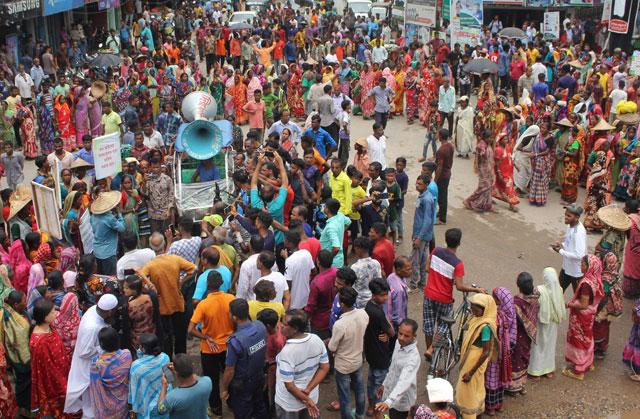You are here
The long shadow cast by Rwanda genocide accused Kabuga
By AFP - Sep 29,2022 - Last updated at Sep 29,2022
NYANGE, Rwanda — He has been described as the financier of the 1994 genocide in Rwanda — a businessman who allegedly turned his vast fortune to the massacre of some 800,000 of his countrymen.
But in his native village of Nyange, more than a quarter of a century later, residents still speak fondly of Felicien Kabuga, even as he prepares to stand trial in The Hague on Thursday for crimes against humanity.
Born in Nyange to parents who were farmers, Kabuga, now 87, rose from humble beginnings to become the virtual owner of the village and its surrounding tea plantations in Gicumbi district.
His empire stretched across sectors including coffee, tea and real estate.
At one point, his fortune was so vast that he was considered one of Rwanda's richest men.
"I was a child at the time, but I remember everyone talking about how Kabuga was helping this community by providing jobs," 35-year-old Alphonsine Musengimana told AFP.
Musengimana worked in Kabuga's plantations as a child, picking tea leaves alongside other family members who were also employed by the businessman.
"He paid us well," she said.
Kabuga hosted huge parties at his hilltop residence, relatives told AFP, recalling wild nights on his terrace.
"He had some of the best liquor... he was a good host," Kabuga's cousin Jean Baptist Munyaneza told AFP.
A lot has changed in the intervening years.
Kabuga's mansion, which still looms over the small brick houses in Nyange, now lies in ruins, with holes in the ceilings, rusty fixtures, peeling paint and gibberish scrawled on its walls.
The tea plantations — about the size of 40 football fields — were auctioned off in 2013 to the tune of 153 million Rwandan francs ($147,000), with the government saying it would use the funds to help genocide survivors.
After a life spent on the run, using false passports and aliases, Kabuga was arrested outside Paris in 2020 and has been in prison ever since, awaiting trial.
But one thing has remained constant: The support from this close-knit community.
"They say that he bought machetes to be used for killing people, but he was a trader. He bought machetes, hoes and all sorts of things to sell them," his cousin Munyaneza told AFP.
"He was a good man, and provided a livelihood for many people. I do not believe the things they say about him," he added.
Many villagers told AFP they were reluctant to speak publicly in Kabuga's favour, expressing fear of President Paul Kagame's authoritarian government, which has been in power since the end of the genocide.
Others said Kabuga was being unfairly targeted for the mass killing of Tutsis and moderate Hutus that lasted for 100 days in 1994.
"When Kabuga was here, he never attempted to preach hate against the Tutsi," said Martin Katabarwa, a relative.
"It was the government [at the time]... that killed Tutsis, not Kabuga," he told AFP.
But the tycoon's closeness to Rwanda's former government remains indisputable.
In 1993, one of his daughters married the oldest son of then president Juvenal Habyarimana, whose assassination triggered the genocide.
Another daughter married Augustin Ngirabatware, the country's planning minister who was sentenced to 30 years in prison for his role in the bloodshed.
Even in Nyange, some villagers told AFP they were in no doubt about his role.
"Kabuga betrayed Nyange and this country," said Jean Nzabandora, a 54-year-old farmer.
"Those supporting him are shameless. They should think of the families that perished," he told AFP.
Anastase Kamizinkunze, the district head of IBUKA, the umbrella association for genocide survivors, was circumspect.
"Even his conviction might not change the minds of some of these people," he told AFP.
"We are looking forward to his trial. It has been a long time coming."
Related Articles
BRUSSELS — A former senior Rwandan official went on trial in Belgium on Monday accused of taking part in the 1994 genocide in his country.Fr
PARIS — A Paris appeals court on Monday rejected a request by the widow of Rwanda’s former president Juvenal Habyarimana to end an investiga
DHAKA — Nearly 150,000 workers at more than 200 Bangladeshi tea plantations went on strike Saturday to demand a 150 per cent rise to their d

















